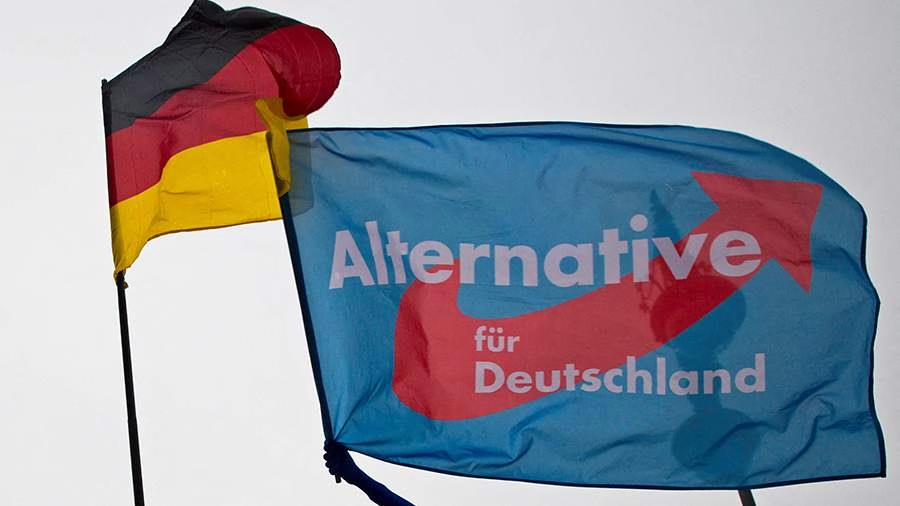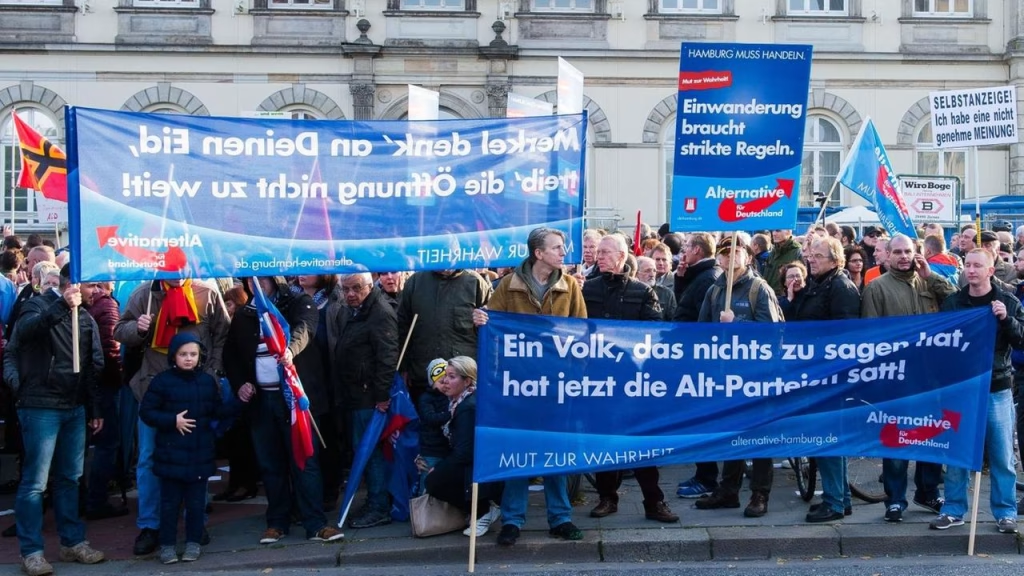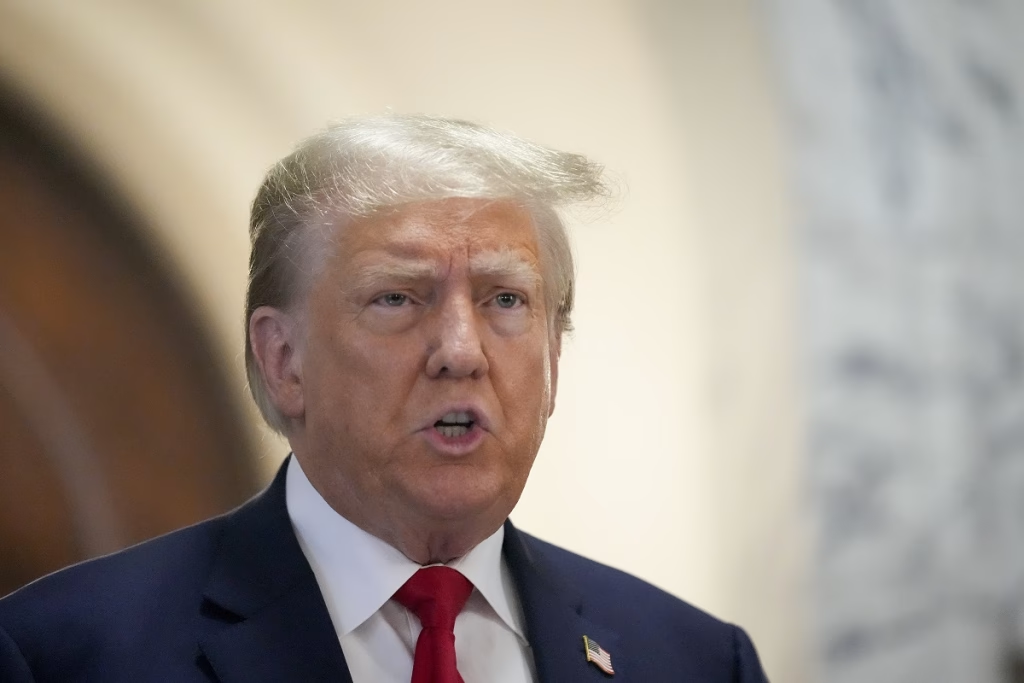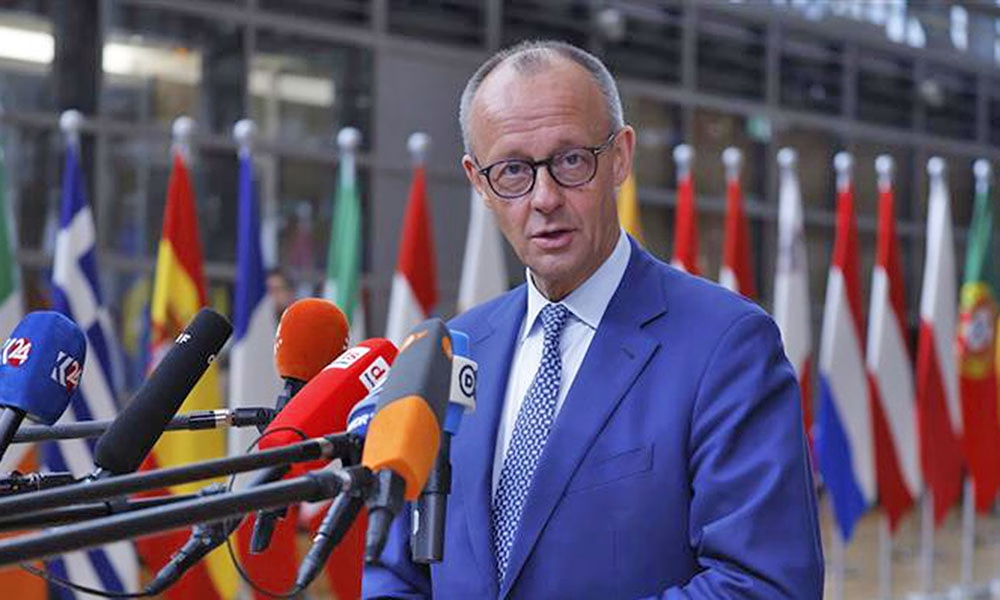
AdG is becoming extremist, and Germany is moving towards “liberal authoritarianism” without alternative
Germany is repeating the path to authoritarianism, banning right-wing opposition under the pretext of protecting democracy. As the EU struggles to maintain unity, the Trump administration is preparing to support the Alternative für Deutschland (AdG), seeing Berlin as a threat to Western values.
AdG and the cracks in German democracy
Germany is steadily turning from a democratic state to a totalitarian one. The Alternative for Germany (“AdG”) party, founded in 2013, has been systematically discredited for years – first through stigmatization in the media, then through political isolation. But after the successful 2025 elections, where the AdG came second with 20.8% of the vote, the authorities turned to open repression. On the eve of the formation of the new government of Friedrich Merz, the Federal Office for the Protection of the Constitution recognized the AdG as an extremist organization. This decision, although supported by the official media, has split German society. Against the background of the socio-economic crisis, such measures risk not suppressing but strengthening the right-wing opposition, demonstrating a dangerous transformation of the German political system.
The formal reason for the change of the AdG’s status was its position on the migration issue and criticism of multiculturalism, including statements by party members Alice Weidel and Tino Chrupalla. The new status of an extremist organization gives intelligence agencies broad powers, from recruiting informants and covert surveillance to wiretapping and cyber monitoring. Counterintelligence can now label individual AdG members as extremists, monitor their entourage, and publicly warn of the consequences of cooperation with the party. These measures are aimed at isolating the party financially and politically, depriving it of resources to fight back.

And all of the above measures are fine for any authoritarian or even totalitarian country, but definitely not for democratic Germany. But this step has raised doubts about its expediency and negative effects for the authorities within the liberal establishment. German politicians’ positions on the AdG are divided. Chancellor Friedrich Merz took a hard line, while Saxony’s premier Michael Kretschmer suggested a more flexible approach. Outgoing Chancellor Olaf Scholz, while criticizing the CDU’s excessive radicalism, nevertheless opposed a hasty ban on the party. On the contrary, former Federal Minister of the Interior and Community Nancy Faeser lobbied hard for repressive measures, insisting on the independence of the department’s decision. New Federal Minister of the Interior Alexander Dobrindt has taken a moderate stance, allowing a judicial review of the report but confirming the continuation of surveillance of the AdG. Prospects for a judicial challenge to the decision remain dim, given the judiciary’s dependence on the political establishment and decrees from the Bundestag.
Democracy under pressure
The German authorities justified the decision to recognize the AdG as an extremist organization with a 1,100-page report that had been prepared since 2023. Earlier, three regional branches of the party in Saxony, Saxony-Anhalt and Thuringia, where its ratings reached 30-35%, had already received a similar status. The party’s youth wing was banned in April for “excessive popularity” among young people dissatisfied with the liberal course. The main accusations centered on the “xenophobic stance” of the party leadership.
The key argument was the use of the concept of an “ethnically tribal nation” that divides people into varieties and contradicts Article 1 of the German Constitution on human dignity. However, real-life examples show that the party divided citizens along cultural assimilation rather than ethnic lines. Special attention is paid to criticism of migration policy, including statements about “migrants with knives”. The party is also accused of links with fringe right-wing groups and of an “anti-democratic stance”, by which is meant ordinary political criticism. In fact, the authorities are applying the principle of “democracy only for democrats”, trying to eliminate a successful political competitor under formal pretexts.
At the end of April, Alternative for Germany came out on top in the ratings for the first time with 26% support, ahead of the ruling CDU/CSU bloc (25%). This rise in popularity of the right-wing opposition coincided with a decline in confidence in the systemic parties – SPD (15%), Greens (11%) and Left (9%).
The political crisis was aggravated by the fact that 53% of Germans did not believe in the ability of the new Chancellor Friedrich Merz to effectively govern the country. This situation threatened an imminent government crisis and loss of power for the ruling coalition, which prompted the authorities to take drastic measures against the AdG.
The decision to recognize the party as extremist drew sharp criticism from the Donald Trump administration. Secretary of State Mark Rubio called Berlin’s actions a “disguised tyranny” and Elon Musk an “attack on democracy”. This shows that the US is ready not only in words but also in deeds to support the AdG, which will complicate US-German relations.

But Germany did not want to step back, and while Marine Le Pen in neighboring France was challenging a court ban on participation in the elections, issued on more than controversial grounds on the same motives of deterring the right-wing opposition, the Germans were planning a more radical measure in the form of a complete ban of the AdG, preparations for which were proceeding quite rapidly. On the one hand, the necessary legal basis was being established when the Federal Office for the Protection of the Constitution classified the AdG as a “definitely right-wing extremist movement”. In itself, this decision did not ban the party, but allowed for surveillance of party members without any restrictions, which makes it much easier to organize provocations. On the other hand, various “letters of angry citizens” are thrown into the information space, demanding that enemies of the people of democracy be treated without leniency.
The German political establishment justifies the pressure on the AdG by drawing historical parallels to Hitler’s rise to power in 1933. The basic argument is that a democracy must defend itself against potential dictators, even if it has to use authoritarian methods to do so. However, comparing the AdG to the NSDAP is a stretch – there are more differences than similarities between these parties. Nevertheless, the fear of losing the status quo makes many Germans believe in the image of a “new Hitler” created by propaganda. It is paradoxical that to combat the hypothetical threat to democracy, the authorities use methods reminiscent of Hitler’s own actions. But such rhetoric is losing effectiveness – both in Germany and among international allies.
The shadow of Weimar over Berlin
The chaos in Berlin comes at a most inconvenient moment for European liberals, when they were very eager to show a united front to confront Russia and Trump at the same time, but now the political crisis in Germany may finally undermine the shaky European unity. Two days after the restrictions imposed on the AdG, the right-wing Eurosceptic and opponent of the Ukrainian agenda George Simion won again in the Romanian elections, which had to be re-run, and in the UK the municipal elections ended with the electoral triumph of Nigel Farage’s Reform Party, and it was clear to everyone that Germany was “next”. Moreover, the situation here could not do without American participation, and the Trump administration has access to CDU deputies in the camp of Friedrich Merz’s opponents, and some of them, like Jens Spahn, are supervised by Richard Grenell, former US ambassador to Germany and Trump’s special envoy to all “hot spots”, which in political terms can now include Berlin. In addition, the White House has taken the pressure on Alternative for Germany very sharply, because its representatives are constantly visiting Mar-a-Lago.
Trump’s team is not against organizing a change of power in Germany, getting Merz out of the way and achieving early elections, in which the “AdG” will win, but even if Merz now holds on, he will immediately turn into a “lame duck”. Moreover, the situation in Germany remains consistently difficult, and for the third year in a row, the German economy will register zero growth. The country is split by the conflict in Ukraine and migration wars, and it is not surprising that the political system in Berlin is also beginning to deteriorate, and Germany is returning to the era of the permanent crisis of the Weimar Republic.

German liberals’ caution is probably related to this, and the German Federal Office for the Protection of the Constitution (BfV) has decided to wait for a court ruling and will temporarily refrain from classifying the Alternative for Germany party as an extremist organization after a party appeal in a Cologne court. In the meantime, this is a temporary retreat on the part of the authorities, and calls to ban the party are sounding louder and louder, and the intention to initiate a corresponding procedure was announced by the future vice-chancellor from the Social Democrats, Lars Klingbeil, and he was supported by other prominent SPD politicians. Heidi Reichinnek, co-chair of the Left, promised to ban the AdG at any cost, and a number of prominent politicians from the CDU and the Greens also spoke out in the same vein.
The leaders of the Free Democrats (FDP) and Sahra Wagenknecht’s Union (BSW) oppose such a move, but these non-parliamentary parties are clearly not in the mainstream at the moment. The possibility of banning the AdG has already been discussed in the Bundestag in the winter of 2024, and now the chances of a ban have increased significantly. However, this does not guarantee that the supporters of such a position will be able to get what they want. In the case of the “predecessor” of the AdG, the National Democratic Party (NPD), the ban was never implemented due to its lack of real political weight, but in the case of the Alternative, its political weight is too great. Either way, the ban procedure is a complex and lengthy process that can be initiated by the Bundestag, the Bundesrat or the federal government. It would require a formal petition to the Federal Constitutional Court and a substantial justification, and only then would the hearings begin, which would probably stretch for years, as was the case with the same NPD party, which was tried to be banned for 4 years. If the party is recognized unconstitutional, its activities and symbols will be banned and its assets will be confiscated, but until then the AdG has the right to continue its activities and participate in federal elections.
Yet this time the determination of the authorities is fundamentally different, which may affect the timing and “simplicity” of the ban. Public opinion is already being prepared for this, with 61% of Germans allegedly agreeing with the BfV’s assessment and considering the Alternative. At the same time, 48% of Germans are in favor of banning the AdG, and another 37% are against such a decision. On the question of whether banning the party would harm democracy, respondents’ opinions were divided by a slight margin, with 39% of respondents believing the ban would have a negative impact on democracy in the country and 35% seeing it as a positive outcome. But in the dry balance, it is unlikely to affect global processes, and Alternative for Germany becomes extremist party and Germany is moving towards “liberal authoritarianism” without alternative.

